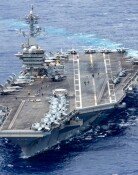Govt. Fails to Stop Defectors Deported to N. Korea
Govt. Fails to Stop Defectors Deported to N. Korea
Posted January. 19, 2007 03:00,
Although the custody of nine family members of South Korean soldiers taken prisoner during the Korean War was handed over to the consulate general of South Korea in Shenyang, China, they were arrested and deported to North Korea by Chinese authorities.
In this regard, the government is unlikely to be able to avoid criticism because they were negligent about protecting the family members. The government was even unaware of the fact whether they were sent back to North Korea or not.
The nine family members of South Korean soldiers defected from North Korea in July or August 2006 and stayed at a hiding place near Shenyang prepared by their families in South Korea until taken into custody of the Korean consulate general on October 11, 2006. In response, the consulate general notified the information to the Chinese government and let the defectors stay in a private lodging house near the consulate in accordance to an agreement made with the Chinese government. However, all the nine defectors were arrested by the Chinese paramilitary police officers on the same day. If defected family members of South Korean soldiers contacted the government from outside its embassy, the government relocates them to a safe place it has agreed with the Chinese counterpart on humanitarian grounds embassy and inform it to Chinese authorities, according to sources.
However, another North Korean defector coincidently attempted to enter the U.S. consulate general in Shenyang on the same day. In response, the Chinese authorities raided suspected places at once and arrested the nine defectors staying at the lodge. However, the Chinese police officers did not know at that time whether the Chinese government was notified about the defectors.
In order to bring South Korean soldiers taken prisoner during the war or their family members, we need to have cooperation from Chinese authorities. Although the case was handled in accordance to the procedures agreed with China, the government was helpless because they were out of its jurisdiction, an official of the Foreign Ministry said.
However, some argue that the Korean government was able to bring them back even to Korea even after the arrest, if the government was more active in this case. In fact, the Chinese paramilitary officers had made several large-scale raids at that time because two defectors entered the U.S. general consulate a month before their arrest. Therefore, the Korean consulate should have made measures to guarantee their safety at the first place.
The Chinese authorities transported the arrested defectors to Dandong, a border town near North Korea, and sent back to North Korea on the next day, or October 12, 2006, after a brief questioning, according to the government. The government informed the news to their families in Korea eight days after their deportation or October 20, 2006.
However, their South Korean families argue that the government is responsible for the deportation, saying it took place not on the October 12 but at the end of October, 2006. They say that they confirmed from local informants in China that the defectors were still under the custody of Chinese authorities in Dandong on the October 20 unlike the governments claim.
After hearing the story from the defectors family members in Korea, the government dispatched a countermeasure team headed by a colonel of the Ministry of National Defense to Dandong. However, the team also failed to confirm the report despite its independent investigation.
We heard from the defectors family members in Korea that the family members of South Korean prisoners of war arrested by the Chinese authorities were still in a detention center in China. However, we had difficulties in verifying certain things, an official of the Foreign Ministry said.
Although the government and high ranking diplomatic officials, including Kim Ha-jung, the then ambassador to China, expressed their regret to the Chinese government after the arrest and urged to return the defectors, they were still unable to figure out exactly what happened to them.
Similarly, the government announced in December 2004 that Han Man-taek, South Korean prison of war, was deported to North Korea after hearing from the Chinese government that Han was arrested by its authorities and sent back to the North. However, there was also suspicion that Han had been in a detention center for nine days in China at that time.
Meanwhile, Korean Foreign Minister Song Min-soon said that he will visit China from January 25 to 27 to confer with the Chinese government in an effort to prepare a system that guarantees the safety of defectors. In addition, Song is expected to hold a meeting during his visit to seek ways to improve the services of the consulate and the system that guarantee the rights of Korean citizens in China.
However, many people are still worried that similar incidents will repeat in the future unless the government changes its attitude toward the North Korean defector issue. In December 2006, or just two months after the incident, the consulate general in Shenyang refused to give assistance to Choi Wook-il, a fisherman kidnapped to North Korea, even though he asked for help. Experts point out that the governments lukewarm attitude toward the North Korean defector issue is the fundamental problem. They say that the government is too much wary of the North Korean regime over the issue.
Experts also point out that Chinas attitude is also a problem. Although China government has been supportive of transporting defectors to South Korea on humanitarian grounds, it cracks down on North Korean refuges if the North strongly protests about it.
weappon@donga.com







